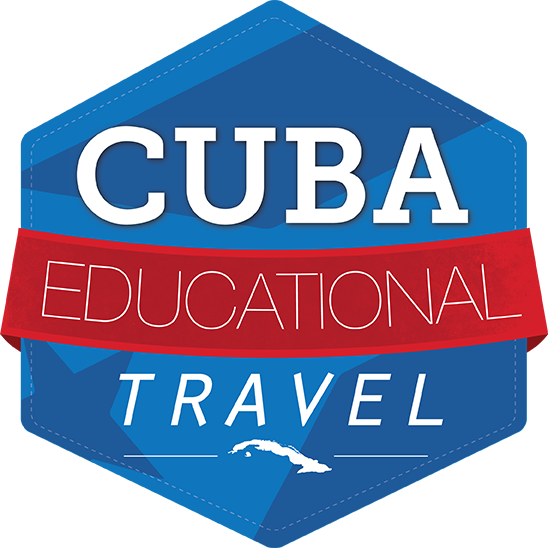Reflecting on CubaOne's Afro-Cuban Trip to the East
CubaOne fellow Tony Haywood (right) in Santiago de Cuba.
In February of this year, a small group of Cuban Americans traveled to Eastern Cuba to explore their Afro-Cuban heritage and reflect on issues of race and identify. It was the first Afro-Cuban themed trip for CubaOne, a Miami-based nonprofit which fosters connections between young Cuban Americans and their families and peers on the island through travel. Beyond Roots, a Havana-based brand and movement that promotes Afro-Cuban culture and identity, helped organize and curate the program. Participants enjoyed the expansive culture and vast beauty of Santiago de Cuba and Baracoa and had powerful interactions with Afro Cuban members of civil society.
We interviewed CubaOne fellow Tony Haywood, a Texan of Afro-Cuban and Bahamian descent.
What is your relationship with Cuba?
I am a proud Afro-Cuban, thanks to my mom and grandma. Although I was not born on the island, I wanted to learn more about my heritage, so I studied at the University of Havana for my master’s degree. I have gone to Cuba many times since 2016 and have visited Vinales, Pinar del Rio, Varadero, Matanzas, Baracoa, Guantanamo and Santiago de Cuba.
What spurred you to apply for CubaOne’s trip to eastern Cuba?
Daniel Jimenez is witness to my hundreds of applications to CubaOne. For me, it was about seeing more than Havana. I always knew that eastern Cuba was spectacular, but to see it up close and experience it was amazing.
This was also the first Afro-Cuban trip. I have had several instances grappling with identity and blackness. I was always forced inside a box growing up. Many others on the trip shared the same experience. I wanted to show the world that black people exist in Cuba, and what better place to do it with other black Cubans in the US going to the largest concentrated city of our ancestors in Cuba?
How has your understanding of your Cuban heritage and identity changed since taking part in the trip?
I was always proud to be Cuban. Though, I always felt like I’ve had to let my experience as a black American override my heritage since I was born in the US. The trip helped me synthesize the perfect balance and I can be free to be black and Cuban with no conflicting feelings of not being true myself.
What were some of your revelations regarding race in Cuba?
I had the unique opportunity to meet a gentleman my age who shared with me that police harass them and ask what they are doing when they are talking with tourists. That experience is unfortunately shared and common throughout the world of black people. The feeling that you do not belong. They weren’t doing anything illegal, yet their existence was constantly questioned.
Was there one particular moment, intellectually or emotionally, that stood out for you during the trip?
The most emotional moment was when we all figured out that we have had similar experiences grappling with being black and Cuban, and having our identities validated in our worlds. We all had similar experiences despite being from different parts of the world. That was emotional for me.
This visit happened shortly before the world froze due to COVID-19. How would you describe your Afro-Cuban reconciliation visit in the context of what the world’s facing now?
I don’t want to trivialize the thousands of people who lost their lives to COVID-19. It threw me for a loop because we didn’t get a chance to debrief properly and we had to quickly shift gears. This diminished all momentum of many projects we had in planning stages. Bad timing on what was such a life-changing trip.
Many people that visit Cuba spend most or all of their time in Havana. What are your thoughts of traveling exclusively to eastern Cuba, and spending all of your time in Santiago and Baracoa?
I would say the East is a Beast. These eastern cities have their own identity and I learned so much about my people from food, to drinks and religion that I am excited to go back. I want everyone going to Cuba to have an opportunity to visit these cities. No city is the same. For me, people were drawn to us being from the US since they have limited experience. I am afraid the US government does not understand the ramifications of blocking off the other cities for us to be able to travel.
If you could share your thoughts with all Cubans, on and off the island, in a couple of sentences, what would your message be?
We love you. We want to see you succeed and we don’t care about the figureheads, we don’t care about the politics. We care about the people. Cuba is fire. We need to make sure that the fire keeps burning for generations to come.


![IMG-20200214-WA0009[1].jpg](https://images.squarespace-cdn.com/content/v1/5a21a237e45a7c1e3b6389ad/1590784353850-EUDGBFJS5YO7YKH1UETK/IMG-20200214-WA0009%5B1%5D.jpg)
![20200214_085904[1].jpg](https://images.squarespace-cdn.com/content/v1/5a21a237e45a7c1e3b6389ad/1590784388402-L4YLM7WZDFRSJ8EKSG1D/20200214_085904%5B1%5D.jpg)
![20200219_171657[1].jpg](https://images.squarespace-cdn.com/content/v1/5a21a237e45a7c1e3b6389ad/1590784323631-P5PIWDMU5ETNLMMLW060/20200219_171657%5B1%5D.jpg)